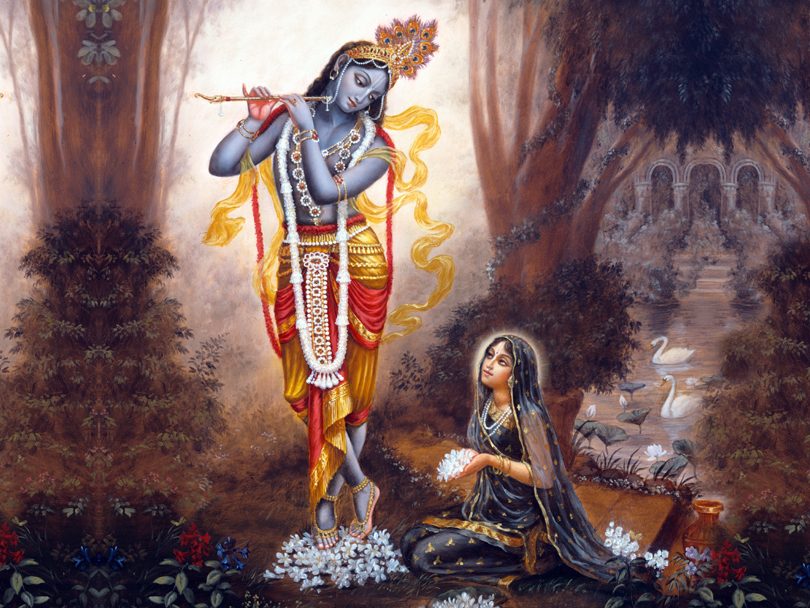Question: I have heard that Lord Caitanya took Sannyasa so the general public would take Him seriously, offering Him respect instead of seeing Him on an ordinary platform. This has sparked a question in me about the role of women and the ‘rule’ that women cannot take sannyasa. This particular topic has been somewhat of a problem for me and I have been trying to understand it.
When posing this question to others, I have been told that women can be a renounciate, and take disciples, though they are not awarded the title of sannyasa. My point has been that it doesn’t matter (materially) what one is spiritually qualified to do if the general public does not take him/her seriously. So in conclusion I have come to think that no matter what ideal people set up for the women in ISKCON, they will never have as much authorized spiritual authority as the men because they cannot take sannyasa (because they lacked the title). It seems to me that Lord Caitanya understood this. I know I am not very qualifed, and there are some things I don’t understand but want to. Please help me.
Answer by Romapada Swami:
The issue here is the cultural role of the female gender in making a society spiritually prosperous and protected, truly loving and dynamic, both at the same time.
Our position as servants of Krishna is to please Him. That is a given, for starters. With that in mind, as a spirit soul in a man’s body, like it or not, I have a specific role to play, a role that is designed by the Creator of this world and of this body. So does a spirit soul in a woman’s body.
The highly spiritually advanced woman devotee has a nurturing role; she leads by her service to others, from the ‘mother of all’ position. For example, young boys are to be trained to respect *ALL* women as their mother, so that when they grow up they will be similarly disposed (viz, NOT to see women as exploitable sense objects, but as respected mothers). This provides a natural respect and protection for women, in general. Then, what is my mother’s role? To nurture me, her son, to provide her breast milk as an infant, to care for my emotional needs for love from a mother, etc. Extended to a broad cultural scale, this would indicate that women/mothers must provide that service for society in general, not only for their own biological children. If a growing-up child has many such ‘mothers’ who are so spiritually advanced that they provide association like an advanced renunciate provides, giving realized knowledge and detachment from the illusory conceptions of life, but genuine motherly love at the same time, what glorious children such a culture will produce!!
A highly spiritually advanced woman is an ambulatory cornucopia of spirituality for society, and a great treasure, to be protected and valued and respected like a materialist covents their most precious family ornaments as heirlooms. A woman’s role as I understand it, and have described briefly above, is a spiritual society’s spiritual heirloom. The protectors are the spiritually advanced men. The roles are different, but the outcome is completely harmonious and complimentary.
Mother Saci did not accept sannyasa following her son’s taking sannyasa, nor did Visnupriya, although they provided immense spiritual shelter for so many devotees!
When society is brought to the position of being replete with ‘spiritual culture’, and when both women and men are spiritually advanced, then the picture of our social roles will be like that of Lord Caitanya, his mother Saci, and his wife Visnupriya.







